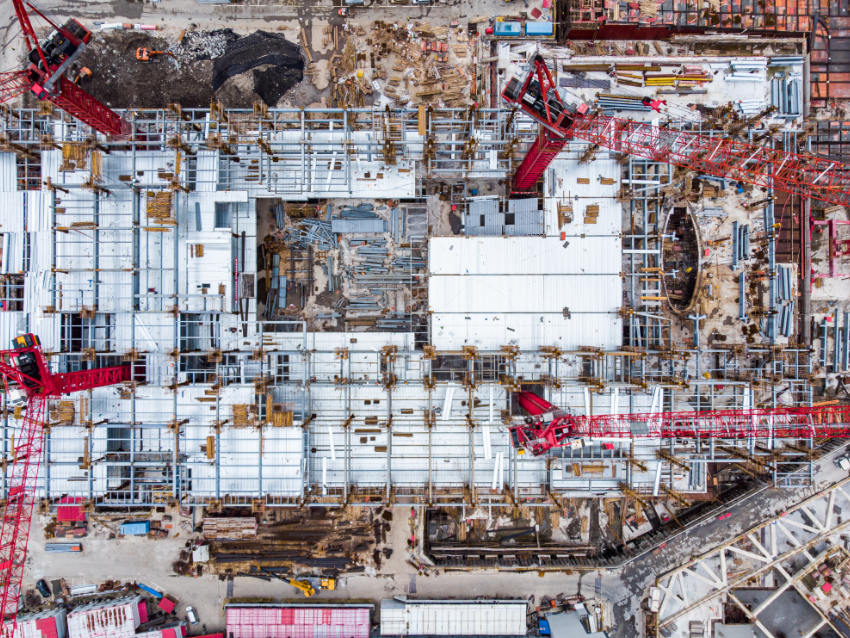The pictures coming from Ukraine are utterly awful. No words are enough to describe the devastation. Streaming of live updates via 24-hour news and social media, together with the proximity of the war and the similarity the streets of Kyiv bear to our own, have made us all highly aware of a tragedy unfolding in real time. The protagonists, the history and the potential global fallout are obvious reasons for the heightened awareness of the Western world. Worse brutality, destruction and loss of life have not received the same attention in Syria, Yemen, or Ethiopia, but the war in Ukraine might now make us reflect on those tragedies, too.
It is impossible for us to comprehend the human impact. One cannot begin to imagine the suffering; the lost family and friends; the physical injuries; the emotional trauma; the homes destroyed; livelihoods vanished and dreams ruined.
It is also worth reflecting on how war – in Ukraine and elsewhere – has a devastating impact on the environment. It’s hard to quantify the full impact on biodiversity, deforestation, air, soil, and water pollution, and how that may compound the suffering of the population. The UN Environment Programme (UNEP) describes “the generation of huge volumes of debris and waste, and the release of hazardous materials such as asbestos, industrial chemicals and fuels… damage to industrial facilities can result in chemical spills and land and water contamination, while damage to water supply and wastewater sanitation facilities or the collapse of solid waste infrastructure can result in pollution.”
There is also no guarantee that the damage will be localised. The Conflict and Environment Observatory (CEOBS) pointed out that the 1991 Gulf War’s oil fires accounted for an estimated 2% of global emissions that year, and also contributed to “the accelerated melting of Tibetan glaciers due to the soot deposited on the ice”.
Beyond the impact of direct military action, war has many environmental costs, including:
- Displacement of people and disruption to the economy, which can cause abandonment and degradation of agricultural land (significant damage has already been done to Ukrainian wheat production). Deployment of landmines and cluster munitions may be a particularly significant contributory factor as the impact of their use persists long after conflicts are over.
- Rebuilding devastated urban areas – reconstructing a city such as Mariupol, which has been relentlessly bombed, will result in huge carbon emissions. Apartment buildings, office blocks, hospitals, schools, factories, roads, bridges all require vast amounts of steel and concrete in the reconstruction process. In a telling comparison, by 2017, a third of Syria’s housing stock was estimated to have been destroyed or damaged in the civil war.
- There may be a collapse in, or disregard for, governance and compliance with local and international environmental rules and regulations during war, but also in the post-war period.
- Wars undermine and distract from efforts at mitigating global warming. Rather than building towards COP27 and developing more ambitious national climate action plans, governments are scrambling with the current energy and growing refugee crises. Rather than cooperation between East and West on a matter of mutual importance, there is growing distrust. Sino-US cooperation will be crucial in limiting climate warming, but right now the Ukrainian war seems to be pushing them apart.
The market is amoral in giving its verdict on some of these issues. Ten days into the war and Northrop Grumman and L3Harris Technologies had both experienced a pop of 24% and 25% respectively in their share price. US shale producers Antero Resources and EQT Corp were up 19% and 22% respectively. Canadian Natural Resources and Suncor Energy, both oil sands-focused exploration and production companies, experienced a 15% increase. Cameco, the largest listed uranium supplier, rose 17%. Meanwhile, KraneShares Global Carbon ETF, which tracks global carbon prices, dropped 34%. On the green side, renewable energy companies were also performing strongly, Ørsted jumped 28% and Vestas Wind Systems 32%. (Bloomberg, as at 7 March)
Overall, the immediate market verdict appeared negative for the environment and chances of mitigating climate warming. It appeared to say: renewables will be part of the solution and will be beneficiaries, but we may have to drill and extract hydrocarbons in the most environmentally destructive ways; nuclear may come back into the equation in a meaningful manner; and that governments may not pursue carbon pricing as a policy tool as enthusiastically as they might have done. It also gave the message that the defence sector – one of the most carbon-intensive industries and one that is antithetical to the idea of sustainability – should be able to attract much greater capital. The German announcement of an increase in its defence spending to 2% of GDP leant immediate support to this interpretation. In the UK, the prime minister’s Telegraph article also supported much of what the market was already telling us.
If any of us were under any illusion about the difficult decisions we may face on mitigating global warming and supporting the delivery of positive sustainability outcomes, the events of the last few weeks should have totally dispelled them. The conflict has left us with many very uncomfortable choices. Are we willing to support nuclear power to go some way in meeting the twin objectives of energy security and decarbonising the energy system? Are we willing to pay more in energy bills and taxes to pay for the transition; to insulate houses, upgrade the transmission networks and decarbonise transport? Are we going to accept shale gas and oil sands as replacement for cleaner Russian gas? Will Western citizens accept closer cooperation with unsavoury regimes such as Saudi Arabia, Iran and Venezuela to make up for lost Russian supplies or to avoid using oil sands? Will broad support for supplying weapons to Ukraine and the recognition of the increased security threat make us look differently upon the defence industry?
It is shocking to see such wanton destruction of life. If one seeks some positives from this horrendous affair, we can point to numerous examples of speedy and generally well-coordinated action by governments, corporates and civil society in support of Ukraine; the decrease in bickering within and among liberal democracies as we recognise the attack on our values; and the hope that both the spike in energy prices and the recognition that we must reduce our dependency on fossil fuels from brutal regimes, ultimately speeds up the energy transition and therefore contributes to limiting global warming. Towards the end of March, even the stock market appeared to be retreating from its initial extremely pessimistic assessment.
The information shown above is for illustrative purposes only and is not intended to be, and should not be interpreted as, recommendations or advice.
Unless otherwise stated, all opinions within this document are those of the UK Value & Income team, as at 24 March 2022.


